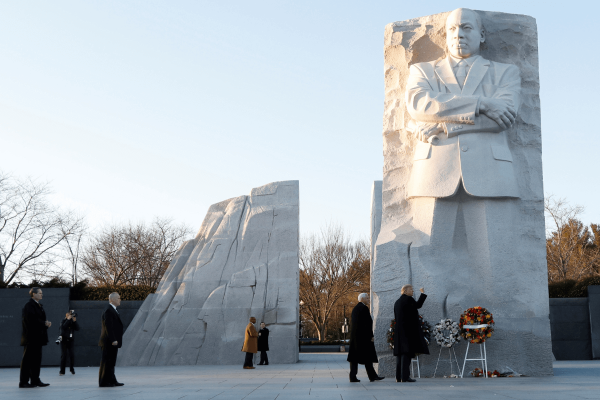Jan 16, 2025
The juxtaposition is hard to ignore: President-elect Donald Trump, who launched his political career by questioning — without evidence — the citizenship of our country’s first Black president, will take his second oath of office on the day we remember and honor Rev. Martin Luther King Jr., this country’s greatest champion for civil and human rights. Though I hope and pray Trump’s second term will follow the moral vision we honor every year on King’s birthday, I fear the dream King cast for America is much more akin to Trump’s nightmare.
Read the Full Article

Already a subscriber? Login
